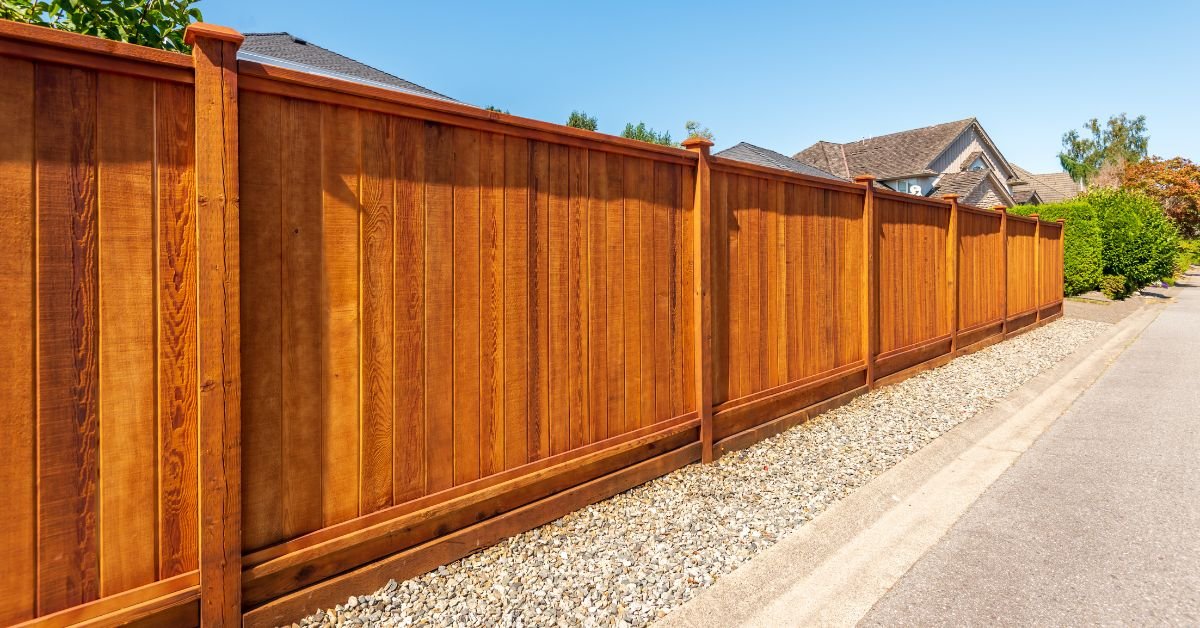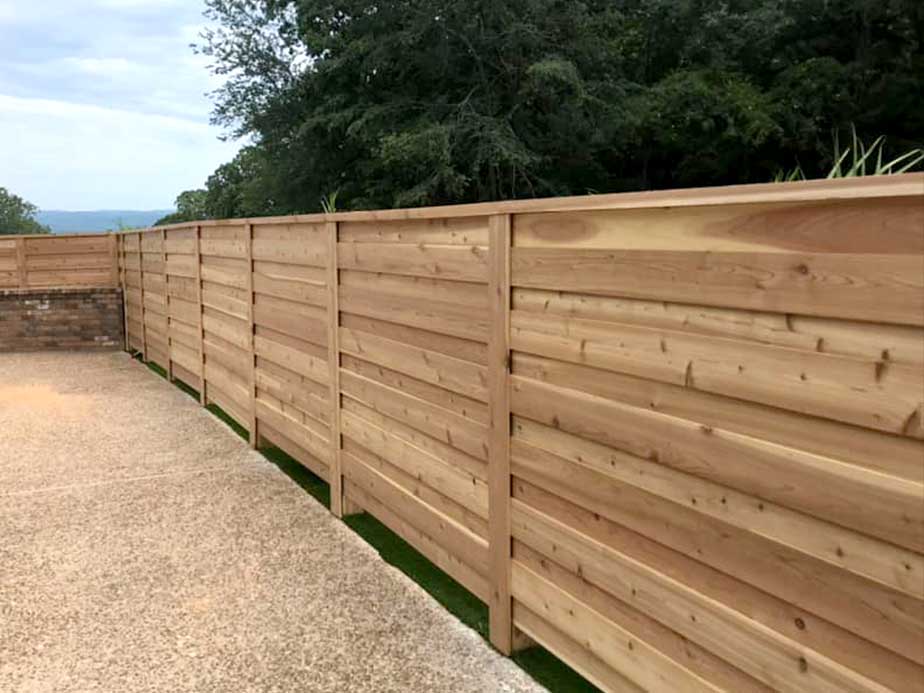All Categories
Featured

When it pertains to selecting a fence that uses both privacy and sound reduction, choosing the right materials is vital. Whether you're looking to shut out the audios of web traffic, offer your lawn with even more privacy, or simply enhance your home's looks, particular fence materials execute far better than others. Allow's explore the very best choices for creating a private, peaceful setting.
- Wood Fence. Timber fences are amongst one of the most popular choices for house owners seeking to improve privacy and lower noise. The density and thickness of wood supply an all-natural barrier that can absorb audio effectively. Wood additionally provides flexibility in regards to layout, enabling for strong, no-gap building and construction that helps block sound from the outdoors globe.
Finest for: House owners trying to find a traditional, rustic appearance while gaining from privacy and noise reduction. Upkeep: Wood fencings call for even more maintenance than various other products, consisting of staining or painting to secure them from the elements. Routine sealing can additionally help protect against rot and decay. Noise Reduction: Strong timber fences work at moistening noise. A continuous, no-gap wood fencing functions best to block audio, particularly when constructed with thicker planks. 2. Plastic Fence. Plastic fencings are a low-maintenance option to wood that still gives good sound decrease and privacy. While plastic does not have the same sound-dampening high qualities as wood, it does supply a solid surface area that can obstruct some exterior noise. The included advantage of vinyl is its resistance to weathering, decomposing, and staining, making it a durable option.

Best for: Property owners who want a maintenance-free fence that still supplies personal privacy and some noise reduction. Maintenance: Plastic requires really little maintenance. It's very easy to clean and does not discolor or splinter, unlike timber. Sound Reduction: Solid plastic fencings supply moderate audio reduction. While not as reliable as wood, they still assist decrease the impact of street noise, especially when installed with tight-fitting panels. 3. Composite Secure fencing. Compound fences incorporate the most effective functions of both timber and vinyl. Made from a mix of recycled wood fibers and plastic, composite fencings are long lasting, low-maintenance, and much more immune to weather than timber. Their thickness allows them to obstruct audio properly, and they are much less vulnerable to rot or fading contrasted to traditional timber fencings.
Finest for: Property owners that want a long lasting, environmentally friendly choice to timber with far better performance than plastic. Maintenance: Composite fences require very little maintenance. They don't require to be painted or stained and can be quickly cleaned with soap and water. Noise Decrease: Due to their density, composite fencings supply superb noise decrease residential properties, comparable to timber fencings, while giving a longer lifespan. 4. Rock or Block Walls. For those looking for the best in privacy and sound decrease, brick or rock wall surfaces are unequaled. These hefty, strong frameworks work as excellent and provide total privacy. Rock and brick are naturally thick, and their mass assists to obstruct both high and low-frequency noises from travelling through.
Ideal for: Property owners that need optimum noise decrease and privacy, and that agree to purchase an extra irreversible option. Maintenance: Stone or brick walls require very little upkeep, with the periodic look for fractures or damage. They do not require paint or sealing, that makes them a low-maintenance alternative in the future. Noise Decrease: Rock or brick is one of the most efficient alternative for noise decrease. Their density and solidity create a bulletproof obstacle versus sound, making them optimal for areas near active streets or noisy environments. 5. Metal Fencing with Acoustic Panels. While steel fences like light weight aluminum or steel are commonly not as reliable in soundproofing, they can be enhanced with acoustic panels to boost noise reduction. The mix of long lasting metal and soundproofing materials offers a sleek and modern-day option for those aiming to block sound while keeping a modern visual.
Finest for: Home owners who desire a contemporary, long lasting fencing with boosted soundproofing abilities. Maintenance: Steel fences need extremely little maintenance, though they might require rust avoidance in locations with high dampness or salt direct exposure. Sound Reduction: When coupled with acoustic panels or soundproofing foam, steel fencings can dramatically lower sound. The panels assist soak up noise, while the metal structure gives toughness and protection. 6. Greenery or Living Fencings. For a natural option, living fencings, such as thick hedges or thick greenery, can aid absorb audio and provide a feeling of privacy. While not as reliable as solid obstacles like wood or rock, well-kept plants like bamboo, cypress, or privet can aid reduce the influence of sound, especially in more rural or rural locations.

Ideal for: Homeowners that want an all-natural, environment-friendly privacy fence that blends with the landscape. Maintenance: Greenery fences require normal cutting and like guarantee they remain healthy and balanced and thick. They can also be susceptible to insects or condition. Noise Decrease: While not as efficient as solid fences, thick hedges can still supply some sound decrease, particularly for high-frequency noises. Verdict. When it comes to developing a quiet and private room, the ideal fence products for sound decrease and personal privacy consist of wood, composite, rock, plastic, and brick. Plastic fencings are low-maintenance and can decrease sound, though not as properly as timber.
Selecting the appropriate material depends on your budget, wanted visual, and the degree of personal privacy and sound decrease you need. Whichever product you choose, buying a premium, sturdy fence will improve your home's privacy and convenience while minimizing unwanted sound.
Latest Posts
Uncover the Best Auto Repair Deals in Montclare, Chicago
Published en
1 min read
How to Know When Your Car Needs Skilled Auto Repair at Montclare Auto Repair
Published en
1 min read
The Benefits of Regular Car Maintenance at Montclare Auto Repair Reduces Costs
Published en
1 min read
More
Latest Posts
Uncover the Best Auto Repair Deals in Montclare, Chicago
Published May 27, 25
1 min read
How to Know When Your Car Needs Skilled Auto Repair at Montclare Auto Repair
Published May 27, 25
1 min read
The Benefits of Regular Car Maintenance at Montclare Auto Repair Reduces Costs
Published May 22, 25
1 min read